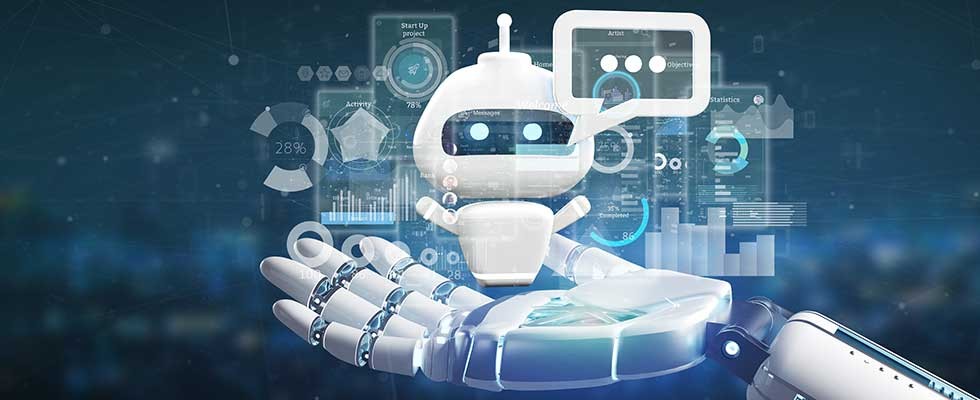
As in many other industries, health care is undergoing a digital transformation as providers, payers and others in the health care value chain leverage new technologies to improve patient care and access, increase efficiencies and reduce costs. The most promising of these technologies is artificial intelligence (AI), which offers profoundly greater power and sophistication than ever before and has the potential to truly revolutionize patient care.
Artificial intelligence gives machines (e.g., computers, drones, robots) the ability to “think” and make decisions using real-time data. AI enables these machines to interpret the world around them, ingest and learn from information, make decisions based on what they’ve learned, and take appropriate action—all without human intervention. AI has become a part of our everyday lives whether we know it or not, helping us with everything from shopping and banking to booking trips to receiving deliveries.
In health care, AI is already improving many aspects of the industry, from empowering patients to adhere to their care plan to helping detect diseases, from discovering new drugs to assisting in surgeries. Because AI’s learning algorithms become more precise and accurate over time as they interact with data, it offers health care professionals unprecedented insights into their patients, allowing them to provide better care, detect risk and close gaps in care before a negative episode arises.
Homecare Use Cases for AI
The growing elderly population is putting a significant strain on care resources. Elder care, long-term care and chronic condition management are becoming daunting and expensive health care challenges—and the problem will increase in the years ahead as the population continues to age in large numbers. In the U.S., the number of Americans over the age of 65 is expected to double from 50 million today to nearly 100 million by 2060. This exploding cohort of aging Americans is already creating overwhelming demand for care teams, home health workers and family caregivers.
AI is well positioned to help alleviate the coming staffing crisis in senior home health care. In one example, conversational AI devices, which can engage in personal conversations with people, have been shown to improve the quality of life, independence and mental health of seniors living alone. More than 40% of older people are already using an automated tool for health care in their homes, proving that there is interest and aptitude for harnessing the power of technology to augment their care between visits—and that is especially true now, during a pandemic.
There are multiple ways that AI technology can be used in homecare environments to improve care quality and address staff resourcing gaps while empowering seniors to age in place. Here is a look at some of the applications for AI in home health.
1. Virtual Nurse Assistants
AI-powered virtual nurse assistants, which are available 24/7, can make calls to (and receive calls from) a large population of patients easily to see if they are feeling well, taking their medications, and if they have any questions about their care, freeing up valuable clinical resources. If patients need help, they can be routed to their physician or other resource, services or a loved one—without human intervention. Virtual nurse assistants can help patients manage chronic conditions at home or after they’ve been discharged from the hospital, increasing patient engagement and improving self-management skills to prevent chronic situations from getting worse. By removing barriers to care and enhancing communication among patients, their families and their providers, these virtual nurse assistants can empower people to age in place, improve care and deliver better outcomes while reducing costs.
2. Digital Companionship
Loneliness poses a significant threat to people’s health and overall well-being. A recent survey by Cigna/Ipsos found that 46% of Americans report feeling alone in their homes and community. The problem is especially acute among older Americans: 25 million people over age 60 suffer from chronic loneliness, and this number is expected to grow to 35 million by 2030.
AI-powered chatbots are well suited to address social isolation in homecare environments. These chatbots, which leverage the use of conversational voice assistants, smart speakers and/or algorithms based on advanced natural language processing, can carry on a conversation in a natural way. In addition to providing companionship and emotional support to users, these digital companions can also collect information on a person’s emotional state, noting if they are not sleeping well, in pain or depressed, which could be signs of a more complex mental health condition.
3. Remote Patient Monitoring
AI-powered wearables make it possible to provide patients with reminders and interventions in real-time to prevent health issues and detect conditions before they get worse. By continuously capturing and analyzing patient metrics and enabling remote monitoring, these AI wearables allow clinicians to see changes in activity and behavior patterns that can help them prevent potential problems related to heart failure, diabetes, chronic obstructive pulmonary disease and even COVID-19.
Artificial intelligence’s transformative power is being felt across many industries, but nowhere is its potential impact more truly life-changing than health care. Today, AI’s power is being harnessed in homecare settings not to replace the human touch, but to augment and improve care in order to make it more effective, efficient, safer and compassionate, while meeting people where they are—at home.
